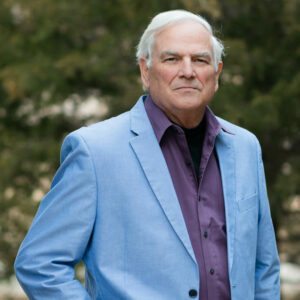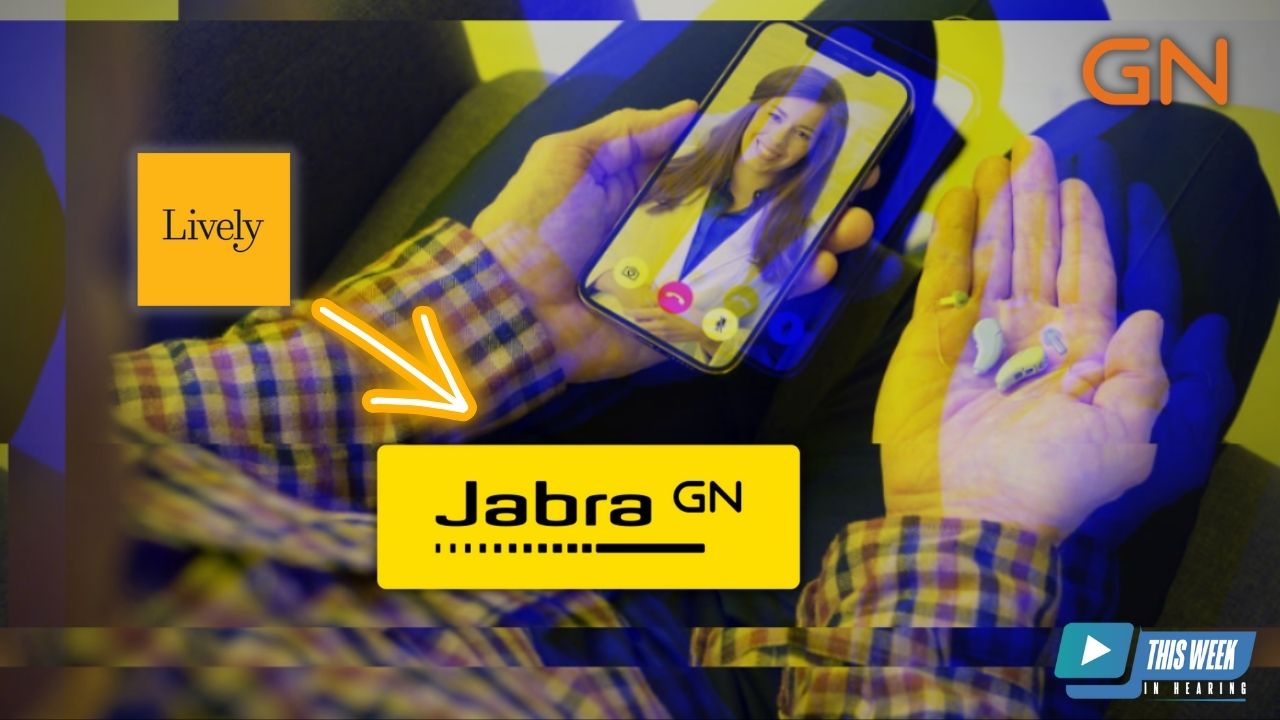In November, GN announced that it was expanding the Jabra Enhance hearing offering to include Lively, a leading direct-to-consumer (DTC) hearing aid provider. Lively, which was acquired by GN in 2021, has now rebranded to Jabra Enhance and launched a new website, JabraEnhance.com, as an “online destination for better hearing enabling consumers to explore, purchase and receive hearing care from home”.
In this episode, Dr. Bob Traynor interviews CEO Adam Karp on the decision to rebrand Lively and why he believes the company can build on its past success and accelerate its plans while being part of a larger brand like Jabra.
Full Episode Transcript
ob Traynor 0:11
Welcome to This Week in hearing. Hi, I’m Bob Traynor, your host for this episode of This Week in hearing this time where our episode is going to be involved is with the discussion of Lively and its transition into Jabra Enhance. There’s a rebranding process that’s going on for these two products currently. And many of us remember a year or so ago, 2021 GN ReSound actually purchased Lively and brought them into the GN ReSound corporation. Today, my guest is Adam Karp, a founder and CEO of Lively hearing, and now he has transitioned into becoming the CEO of Jabra Enhance. Welcome to This Week in Hearing Adam, and thanks so much for being with us today.
Adam Karp 1:14
Thanks for having me, Bob. I really appreciate it.
Bob Traynor 1:16
You know, to begin these discussions, I like to get an idea of how you came into the hearing industry. I understand you’re a marketing guy and as we move from marketing into hearing aids, and, and into becoming a founder of Lively hearing, and also then your transition as Jabra Enhance CEO.
Adam Karp 1:45
Great question. And I will give you the abridged version, because it’s a it’s a 25 year journey that I will try and shorten but I’m a marketer by trade. And so when I graduated school many many years ago, I started in marketing departments primarily working at consumer brands, on digital projects. So the first company I worked at was Century 21 real estate. I then spent about a decade at Barnes & Noble, running direct marketing, both for the website as well as all the stores. And then I worked at companies as small as online startups, and as large as American Express. And right before I co founded Lively, I had joined a online marketplace for luxury design called First Dibs, which I helped scale up from a relatively small company to one that went public a couple of years ago, and running marketing. And I was looking for an opportunity to be CEO. And I spent about a year and a half looking at lots of different companies. And I was connected with my co founders through a venture studio that shared with me a number of businesses, and the only one that I was interested in was what was to become Lively. And the reason why I was interested was they pitched this concept of making hearing care more accessible, particularly through leveraging remote tuning. And as I’ve shared publicly, and as I shared in that moment, I was going through, you know, the very stereotypical experience of an adult child with a parent who was struggling with their hearing, who was in a fair amount of denial of that hearing loss, but also who because of his adult children and his loving wife had tried to get hearing aids and wasn’t enamored with the process, the traditional process. And part of that was that he wanted to do things from the privacy of his own home. And so it was very serendipitous when this sort of opportunity came my way in between like sort of seeing the the problem that was in the market. Me the my co founders meeting advisors like Dr. Harvey Abrams, who, you know, since I didn’t have a hearing background, I really wanted to make sure that I surrounded myself with people who did you know, I took the leap four years ago and couldn’t be happier.
Bob Traynor 4:37
Sounds like it was quite a journey all the way from marketing into the hearing industry. You know, Lively was such a fascinating product because one of our gurus in audiology, Dr. Mike Valente, has always said that it’s affordability and convenience that are the Mainstays. And I understand that these were things that, that you and your colleagues at Lively, used to enhance that brand and move it forward as it’s been quite successful over the last few years. So what was the motivation by the corporate executives for taking a successful brand, like Lively hearing, that it’s really done a nice job with the direct to consumer market? In fact, they changed that into a successful market. What was their motivation and moving that into a different brand, which would be Jabra Enhance? What do they think they’re going to gain by having this brand change?
Adam Karp 5:51
Yeah, great question. So as I shared, you know, when my co founders and I started Lively, it was to make hearing care more accessible. And when we sold the company to GN late last year, we did so because both we and GN felt that by joining forces, we could help even more people hear better. And this rebrand to Jabra is part of that mission. So we are combining Jabra’s resound brand- renowned brand, sorry, resound, you know, is always in the back of my mind, but renowned brand, for audio expertise with Lively’s tradition of innovative telehealth. And by combining those two things, we believe that we can accelerate our mission to make hearing care even more accessible. And in a world where we’ve got Sony and Philips and other big brands entering the hearing space, you can imagine that it feels really good to have a global brand like Jabra, under which we’re operating. So that’s the rationale. And we’re really excited about it.
Bob Traynor 7:06
Now, how is this going to be different for patients that are now seeking these direct to consumer products and services? Is that going to make any changes for them?
Adam Karp 7:19
Yeah, so we’re, I mean, we’re only a few weeks into the rebrand. And so today, things are very much like they were yesterday only we have a lot more Jabra in our life, a lot more yellow, I would say. And so same great product, same great care, even the same phone number. But we’ve got some great things coming. So first up in January, we’ll add the Jabra Enhance Plus model to our site. And so Jabraenhance.com will be the only place where consumer can buy both the Plus and all of our existing models the Select. And that’ll be the first step towards making the hearing care even more accessible. After that, our goal is to enable folks to buy the plus and at least some of the select models beyond just our website, as well as we really want to work closely with the certified Jabra Enhance centers where you can buy the enhance plus and also get prescription devices where you can get so that in the future, you’ll be able to get both the plus and select.
Bob Traynor 8:33
Well, then on another note, what does that going to be doing for for patients that are already lively customers? Will they have some advantages by by the company’s move to becoming Jabra Enhance.
Adam Karp 8:50
So it should have very minimal effect. The largest frankly, was that folks had an update the app that controls the hearing aid because that’s no longer the My Lively app or the Lively Connect app, it’s now branded Jabra. But beyond that, it should be virtually seamless to them.
Bob Traynor 9:09
As a clinician, I always get a little concerned about new ways in which people can obtain products and so on and but but understand that, as you’re as you’re moving into from lively into Jabra Enhance, it also gives you access to a a very large group of clinicians that are already resound customers. And you and is this going to enhance their practice to some degree as well?
Adam Karp 9:41
Yeah, so it’s something we’ve been very focused on since the acquisition late last year. Earlier this year, we piloted a program where we promoted an offering to folks who had come on to our website where if they wanted If they could go to a traditional clinic for an initial fitting, and then they would get virtual care or telehealth afterwards. So that is something we piloted in a few markets earlier this year between the rebrand and OTC finally making it out of draft mode and into reality. We put a pause on that. And we are rethinking how to build a product that fits for both consumers and for clinicians later in 2023.
Bob Traynor 10:39
What happens with the potential patients that visit Jabra Enhance, but really aren’t appropriate for the Jabra products? Do you have a program that you use to send those patients elsewhere?
Adam Karp 10:58
Great question. So if during our process, we flagged that somebody doesn’t qualify, we send them we refer them to an audiologist. And we do that today by sending them either to the network of ReSound offices, or to the Beltone network.
Bob Traynor 11:21
Now, I know that you’re really busy with a, a brand change, and all the OTC kinds of things that are going on these days, all your marketing and all the different things that happen with a brand change as well, in addition to all these other things, but do you have some plans to take Jabra Enhance into the international market? You know, resound has quite an international following. And it’s only reasonable that you would bring the direct to consumer products into other markets.
Adam Karp 11:59
Yeah, so today, we’re incredibly focused on the US market. As, as we’ve talked about, there’s a lot going on. Right, we’ve got OTC, we just rebranded. And there’s still two thirds of the folks who would benefit from a hearing aid who don’t have one. And so we see a huge opportunity here in the US. But I would say as we thought about the rebrand using jobra, which is a global brand gives us an opportunity to expand globally, in a much easier way than if we were lively, which frankly, doesn’t translate to many brands, which has no recognition outside of the US. And so the Jabra brand really gives us a great platform for expansion. But right now, we’re very focused on the US, we’re really a very mission driven company. Like, just across the entire company. And we we meet as a whole company once a week, and we share sort of a voice of the customer. So we can really see the impact, I’m sure you as a clinician know, like the really tangible feedback you’ll get from customers when you help them with their hearing. And so, you know, the fact that the model that we’ve pioneered, can work in other locations, and even if it’s done by other people, we feel really great about you know, making hearing care more accessible. And sort of just tying back to my my original story about how I got involved in Lively very coincidentally, my father called me this weekend, and he’s on his second pair because he bought you know, the battery powered that we started with when we added rechargeable, you know, he got those and then he actually called me and said, hey, those, you know, the new models, you have the ones that stream those look really helpful, and I’m really wearing my hearing aids all the time right now. And so it was like, just sort of, you know, 180 from dragging him to wear his first pair to now where he’s asking to, you know, upgrade his hearing aids because he wears them so much. Both like on a personal level obviously felt good, but you know, to your earlier point like this model really can help people who have resisted wearing hearing aids before.
Bob Traynor 14:28
Thank you for being with us today. Adam at This Week in Hearing. This has been a very nice discussion and enlightenment for all of us as to how Lively hearing is going to be transitioned into Jabra Enhance. Be with us next time when we discuss other issues in the hearing industry and audiology. And thank you for watching us through for this episode.
Adam Karp 14:59
Thank you bob I really appreciate the time and the ability to share what we’re building here at Jabra Enhance
Be sure to subscribe to the TWIH YouTube channel for the latest episodes each week, and follow This Week in Hearing on LinkedIn and Twitter.
Prefer to listen on the go? Tune into the TWIH Podcast on your favorite podcast streaming service, including Apple, Spotify, Google and more.
About the Panel
 Adam Karp is CEO of Jabra Hearing which operates JabraEnhance.com, a leading online hearing care platform, enabling consumers to explore, purchase and receive hearing care in the U.S. from home. Prior to Jabra Hearing, Adam was CEO and co-founder of Lively Hearing which was acquired by GN in 2021 and rebranded to Jabra in 2022. Prior to his career in hearing healthcare, Adam was Chief Marketing Officer of 1stDibs the leading online marketplace for extraordinary design. Before joining 1stDibs Adam held senior marketing positions at well-known consumer brands such as FreshDirect and Barnes and Noble.
Adam Karp is CEO of Jabra Hearing which operates JabraEnhance.com, a leading online hearing care platform, enabling consumers to explore, purchase and receive hearing care in the U.S. from home. Prior to Jabra Hearing, Adam was CEO and co-founder of Lively Hearing which was acquired by GN in 2021 and rebranded to Jabra in 2022. Prior to his career in hearing healthcare, Adam was Chief Marketing Officer of 1stDibs the leading online marketplace for extraordinary design. Before joining 1stDibs Adam held senior marketing positions at well-known consumer brands such as FreshDirect and Barnes and Noble.
 Robert M. Traynor, Ed.D., is a hearing industry consultant, trainer, professor, conference speaker, practice manager and author. He has decades of experience teaching courses and training clinicians within the field of audiology with specific emphasis in hearing and tinnitus rehabilitation. He serves as Adjunct Faculty in Audiology at the University of Florida, University of Northern Colorado, University of Colorado and The University of Arkansas for Medical Sciences.
Robert M. Traynor, Ed.D., is a hearing industry consultant, trainer, professor, conference speaker, practice manager and author. He has decades of experience teaching courses and training clinicians within the field of audiology with specific emphasis in hearing and tinnitus rehabilitation. He serves as Adjunct Faculty in Audiology at the University of Florida, University of Northern Colorado, University of Colorado and The University of Arkansas for Medical Sciences.







